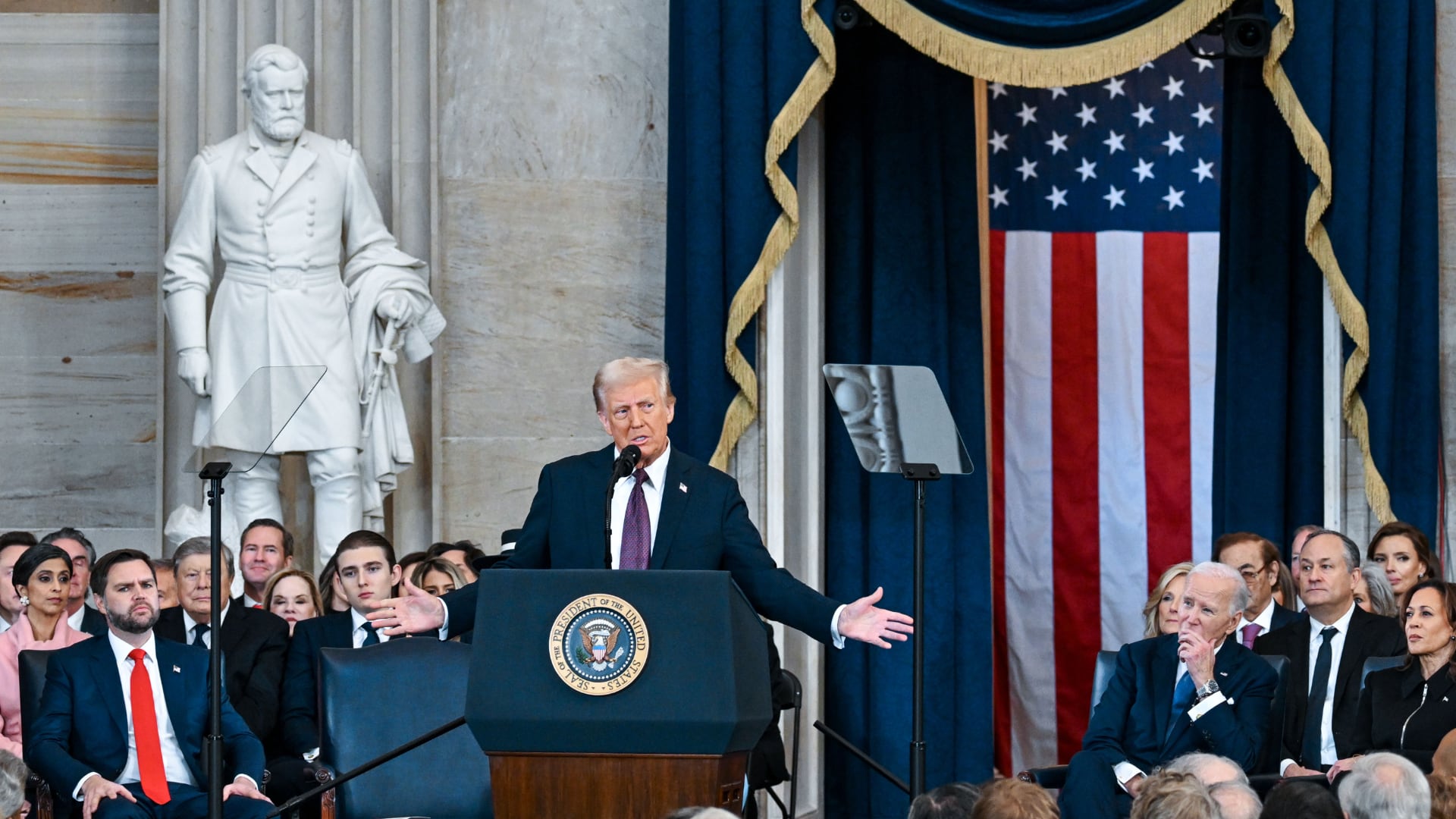Three weeks ago, the United States and Iran appeared to be on the brink of war. Now, although leaders continued to spew angry rhetoric, the situation appears to have de-escalated. Still, foreign policy and national security experts caution against treating the situation as resolved.
Hagar Chemali, who worked at the National Security Council and Treasury Department under Presidents George W. Bush and Barack Obama, thinks the current administration has not been clear in setting a clear path forward but cautioned against treating Iran as a victim of the administration's indecision.
"They are up to a whole range of nefarious activity," she told Cheddar. "They have broad foreign policy goals to expand their influence across the region and they do it in a very destabilizing way," which she said, "directly implicates U.S. national security interests."
After an Iranian-backed militia killed a U.S. contractor late last year, President Donald Trump ordered the operation that killed Gen. Qassem Soleimani, head of Iran's Quds Force. Iran retaliated by launching attacks on two bases in Iraq that house U.S. forces. While nobody was reportedly killed in those attacks, Iran has admitted to also accidentally shooting down a commercial jetliner near Tehran, killing all 176 people on board.
Chemali believes sanctions are an effective means of pressuring nations to change behavior, as a "means to an end but the ends are not clearly articulated by the Trump administration."
However, she says this administration needs to clarify whether the U.S. is willing to remove some sanctions before or during talks so that Iran knows what it is walking into. "You do have this grey area where if you both agreed to do some preliminary small steps, it could provide some sanctions relief to enter some negotiations."
Michèle Flournoy, an Obama administration alum who served as the under secretary of defense for policy agreed, adding that in order for the Trump administration to accomplish its goals, Iran needs to see a path forward.
"We have to lay out a set of prioritized acts from them and also something we're willing to offer," although Flournoy added, "Our actions have made that almost impossible in the near term."
She said the U.S. needs "to clearly communicate: how does Iran get an off-ramp?"
There's "no plan, no offer, no pathway that the U.S. has spelled out for them to get out from under sanctions and so the provocations are very much an effort to get others to put pressure on the United States to spell out some kind of negotiation strategy and also to put pressure on the U.S. to come to the table," she said.
Flournoy thinks the U.S. has to help Iran come back to the negotiating table and Chemali said Iran needs to show a willingness to act in a way that would warrant the removal of sanctions.
"This is Iran's fault and no one should forget that," Chemali said. "I just think it's too easy to say or imply this is the U.S.'s fault, that there's zero strategy and that there needs to be an off-ramp."
Flournoy noted that while the sanctions were "really designed, in some sense, to push Iran to the brink economically, but also politically," the "big question is: what is the resolution to all this tension?"
Both experts agree that though the nations eased back from the brink of war, the underlying tension is far from over.
"Trump seems to think his unpredictability is an asset, but I think what it's doing is making our friends highly uncertain that they can rely on the U.S. and making them look elsewhere for partnership, and making our adversaries feel they have free range to test our provocations because they don't know where the lines are anymore," Flournoy said. "They don't know what we're willing to defend or not."













